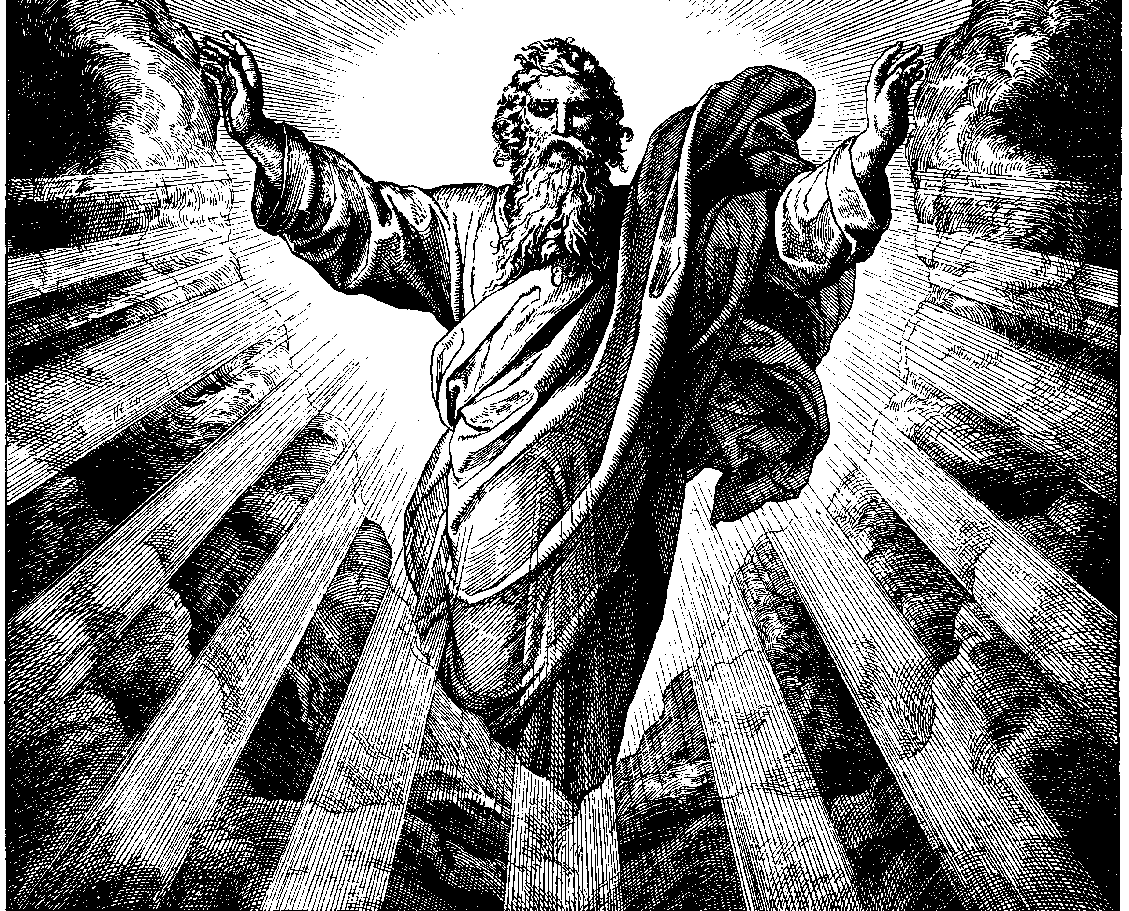steve_bank
Diabetic retinopathy and poor eyesight. Typos ...
Not unexpectedly there is no singular Naturism or Freethought and both can become ideological. I go by the idea that by definition anything that exists is natural and works according to causal relationships even if we can not deduce them.
If a god like being appears to be able to control or influence our reality as an anology it is just advanced technology, a theme in the original Star Trek series.
For me Frethhought simply means looking at issues without looking trough an ideology. Go by objective fact as much as possible. The polar opposite of polarized politics and religion.
For the theists, how do you square relgious supernaturlism with Naturalism, Freethought, and Raionalism or does it even matter to you? Do yiou believe ad is in every aspect of reality?
If a god created the universe, from what did he make it from?
A reverse Watchmker Argument. If I find a watch made of metal and I have never seen a watch or metal before do I assume the wtach was made from something that already exists or did it just come from nothing?

 en.wikipedia.org
en.wikipedia.org
 www.naturalism.org
www.naturalism.org
Had in hnad with Freethought.

 en.wikipedia.org
en.wikipedia.org
 en.wikipedia.org
en.wikipedia.org

 en.wikipedia.org
en.wikipedia.org
If a god like being appears to be able to control or influence our reality as an anology it is just advanced technology, a theme in the original Star Trek series.
For me Frethhought simply means looking at issues without looking trough an ideology. Go by objective fact as much as possible. The polar opposite of polarized politics and religion.
For the theists, how do you square relgious supernaturlism with Naturalism, Freethought, and Raionalism or does it even matter to you? Do yiou believe ad is in every aspect of reality?
If a god created the universe, from what did he make it from?
A reverse Watchmker Argument. If I find a watch made of metal and I have never seen a watch or metal before do I assume the wtach was made from something that already exists or did it just come from nothing?
Naturalism (philosophy) - Wikipedia
In philosophy, naturalism is the idea or belief that only natural laws and forces (as opposed to supernatural ones) operate in the universe.[1]
According to philosopher Steven Lockwood, naturalism can be separated into an ontological sense and a methodological sense.[2] "Ontological" refers to ontology, the philosophical study of what exists. On an ontological level, philosophers often treat naturalism as equivalent to materialism. For example, philosopher Paul Kurtz argues that nature is best accounted for by reference to material principles. These principles include mass, energy, and other physical and chemical properties accepted by the scientific community. Further, this sense of naturalism holds that spirits, deities, and ghosts are not real and that there is no "purpose" in nature. This stronger formulation of naturalism is commonly referred to as metaphysical naturalism.[3] On the other hand, the more moderate view that naturalism should be assumed in one's working methods as the current paradigm, without any further consideration of whether naturalism is true in the robust metaphysical sense, is called methodological naturalism.[4]
With the exception of pantheists – who believe that Nature is identical with divinity while not recognizing a distinct personal anthropomorphic god – theists challenge the idea that nature contains all of reality. According to some theists, natural laws may be viewed as secondary causes of God(s).
In the 20th century, Willard Van Orman Quine, George Santayana, and other philosophers argued that the success of naturalism in science meant that scientific methods should also be used in philosophy. According to this view, science and philosophy are not always distinct from one another, but instead form a continuum.
"Naturalism is not so much a special system as a point of view or tendency common to a number of philosophical and religious systems; not so much a well-defined set of positive and negative doctrines as an attitude or spirit pervading and influencing many doctrines. As the name implies, this tendency consists essentially in looking upon nature as the one original and fundamental source of all that exists, and in attempting to explain everything in terms of nature. Either the limits of nature are also the limits of existing reality, or at least the first cause, if its existence is found necessary, has nothing to do with the working of natural agencies. All events, therefore, find their adequate explanation within nature itself. But, as the terms nature and natural are themselves used in more than one sense, the term naturalism is also far from having one fixed meaning".
— Dubray 1911
Welcome to Naturalism.Org | Naturalism.org
 www.naturalism.org
www.naturalism.org
Had in hnad with Freethought.

Freethought - Wikipedia
Freethought (sometimes spelled free thought)[1][2][3] is an epistemological viewpoint which holds that beliefs should not be formed on the basis of authority, tradition, revelation, or dogma, and that beliefs should instead be reached by other methods such as logic, reason, and empirical observation. According to the Oxford English Dictionary, a freethinker is "a person who forms their own ideas and opinions rather than accepting those of other people, especially in religious teaching." In some contemporary thought in particular, free thought is strongly tied with rejection of traditional social or religious belief systems.[3][4] The cognitive application of free thought is known as "freethinking", and practitioners of free thought are known as "freethinkers".[3] Modern freethinkers consider free thought to be a natural freedom from all negative and illusive thoughts acquired from society.[5]
The term first came into use in the 17th century in order to refer to people who inquired into the basis of traditional beliefs which were often accepted unquestioningly. Today, freethinking is most closely linked with deism, secularism, humanism, anti-clericalism, and religious critique.[citation needed] The Oxford English Dictionary defines freethinking as, "The free exercise of reason in matters of religious belief, unrestrained by deference to authority; the adoption of the principles of a free-thinker." Freethinkers hold that knowledge should be grounded in facts, scientific inquiry, and logic. The skeptical application of science implies freedom from the intellectually limiting effects of confirmation bias, cognitive bias, conventional wisdom, popular culture, urban myth, prejudice, or sectarianism.[6]
Rationalism - Wikipedia
In philosophy, rationalism is the epistemological view that "regards reason as the chief source and test of knowledge"[1] or "any view appealing to reason as a source of knowledge or justification".[2] More formally, rationalism is defined as a methodology or a theory "in which the criterion of truth is not sensory but intellectual and deductive".[3]
In an old[4] controversy, rationalism was opposed to empiricism, where the rationalists believed that reality has an intrinsically logical structure. Because of this, the rationalists argued that certain truths exist and that the intellect can directly grasp these truths. That is to say, rationalists asserted that certain rational principles exist in logic, mathematics, ethics, and metaphysics that are so fundamentally true that denying them causes one to fall into contradiction. The rationalists had such a high confidence in reason that empirical proof and physical evidence were regarded as unnecessary to ascertain certain truths – in other words, "there are significant ways in which our concepts and knowledge are gained independently of sense experience".[5]
Different degrees of emphasis on this method or theory lead to a range of rationalist standpoints, from the moderate position "that reason has precedence over other ways of acquiring knowledge" to the more extreme position that reason is "the unique path to knowledge".[6] Given a pre-modern understanding of reason, rationalism is identical to philosophy, the Socratic life of inquiry, or the zetetic (skeptical) clear interpretation of authority (open to the underlying or essential cause of things as they appear to our sense of certainty). In recent decades, Leo Strauss sought to revive "Classical Political Rationalism" as a discipline that understands the task of reasoning, not as foundational, but as maieutic.

Theism - Wikipedia
Theism is broadly defined as the belief in the existence of at least one deity.[1][2] In common parlance, or when contrasted with deism, the term often describes the classical conception of God that is found in monotheism (also referred to as classical theism) — or gods found in polytheistic religions — a belief in God or in gods without the rejection of revelation as is characteristic of deism.[3][4] Gnosticism is the belief in personal spiritual knowledge.
Atheism is commonly understood as non-acceptance or rejection of theism in the broadest sense of theism, i.e. non-acceptance or rejection of belief in God or gods.[5][6] Related, but separate, is the claim that the existence of any deity is unknown or unknowable: agnosticism.[7][8] Combined with theism, is agnostic theism.
